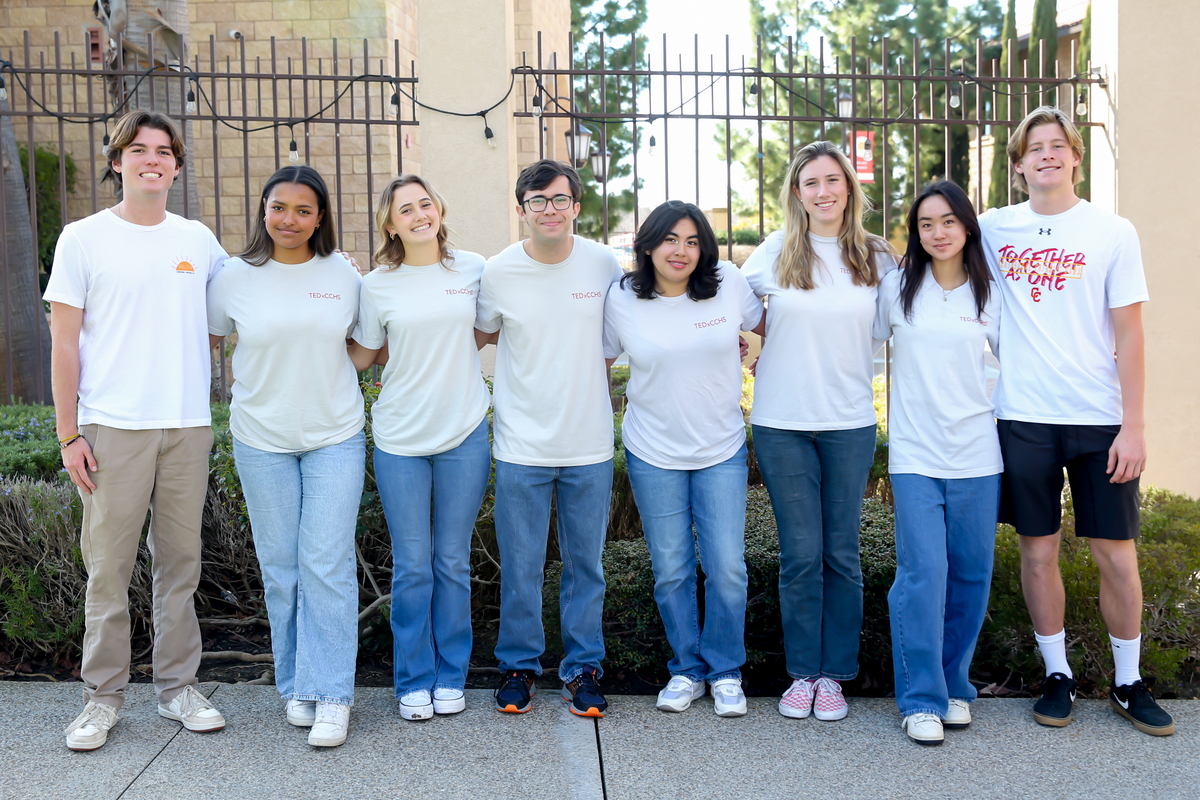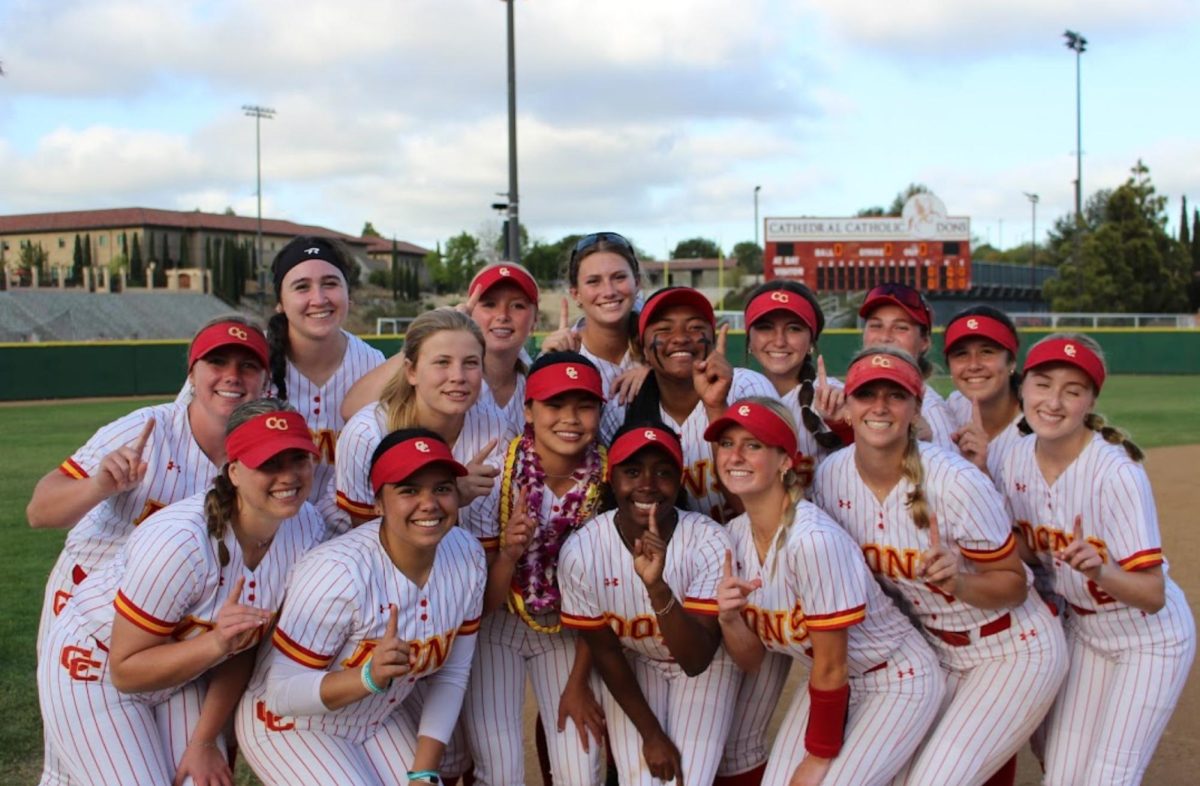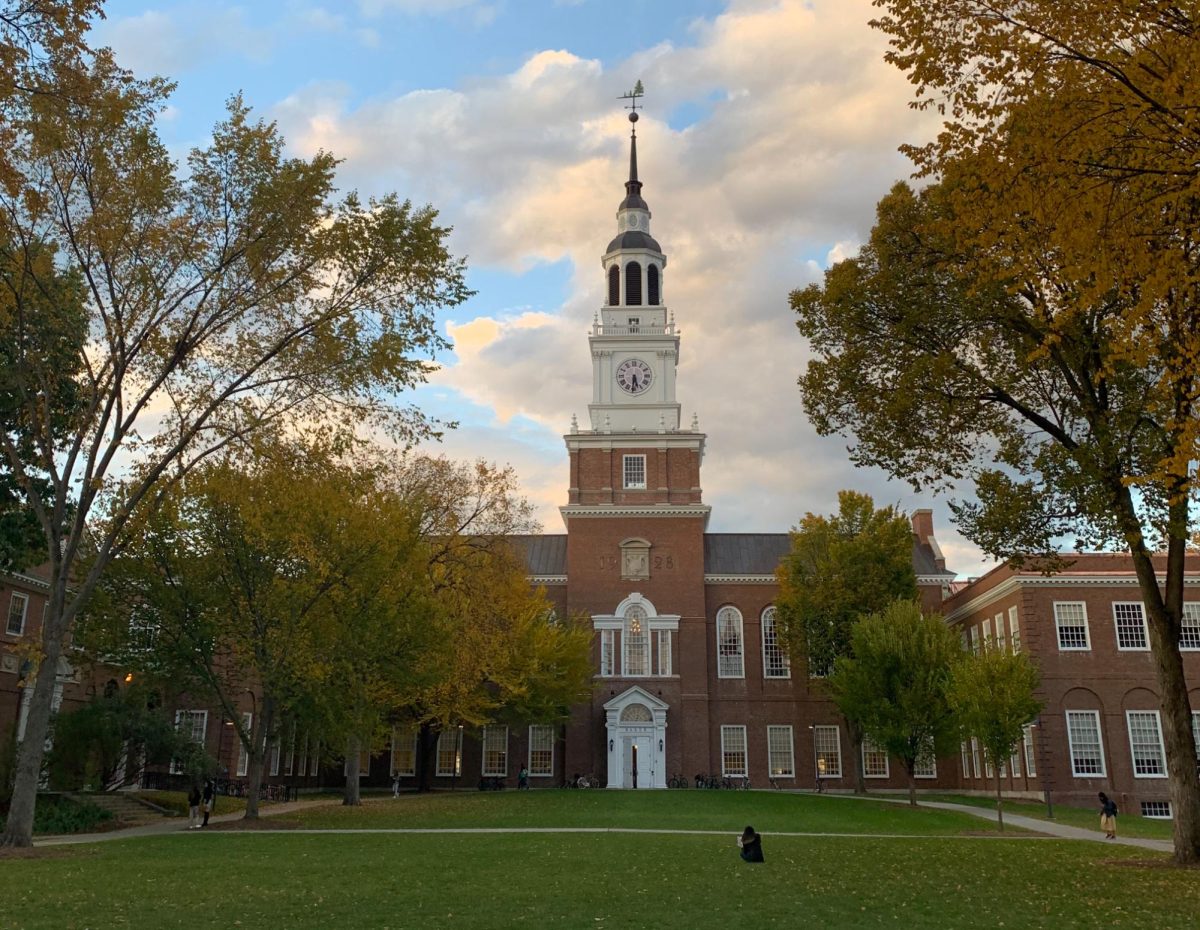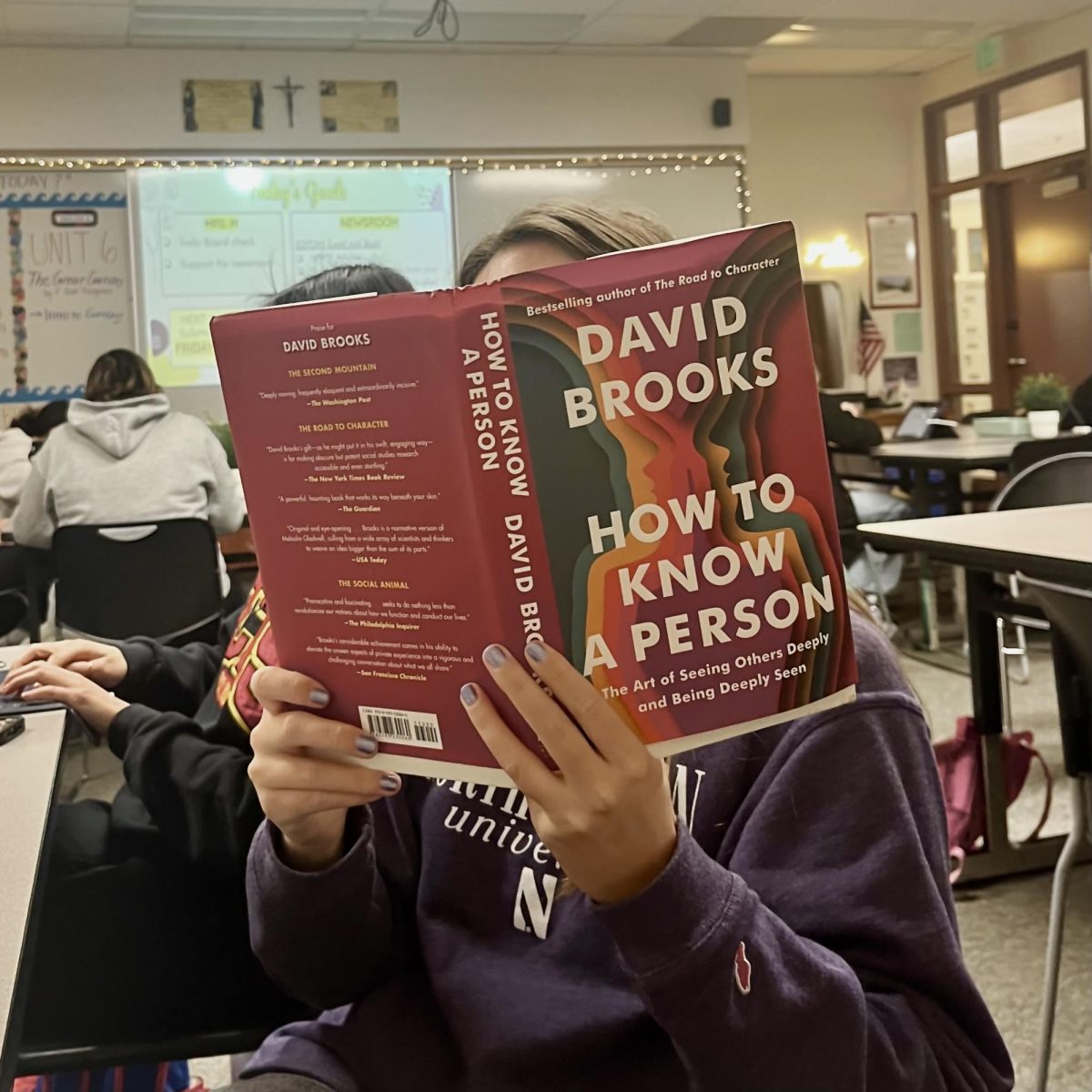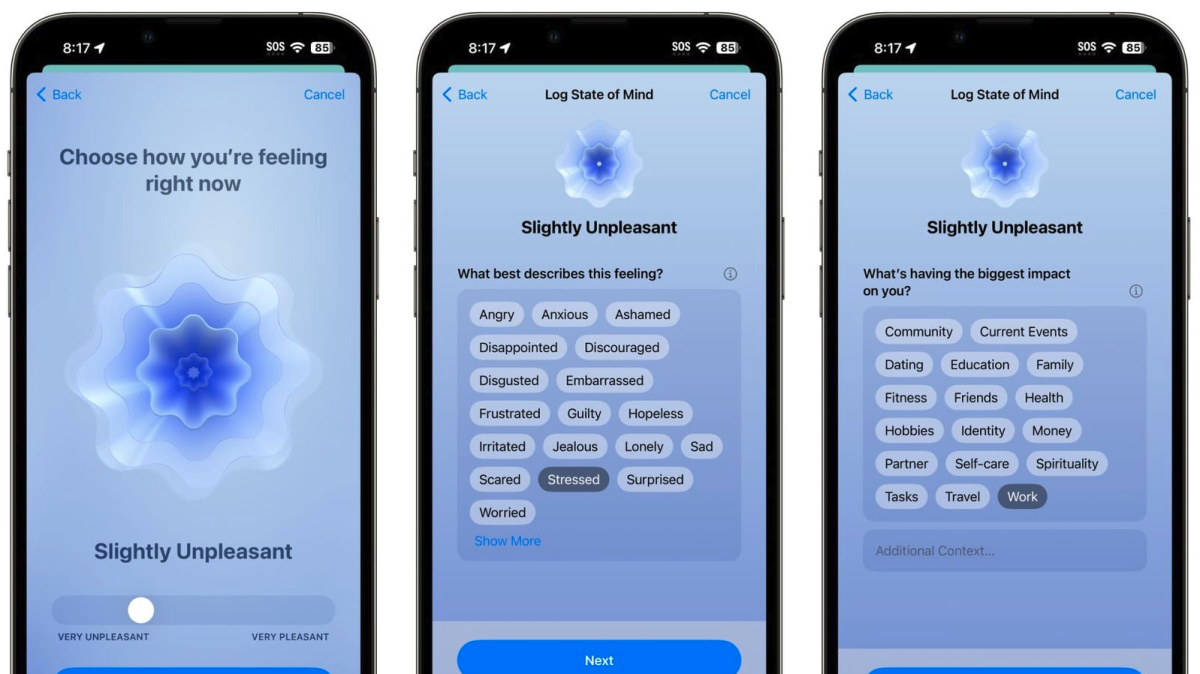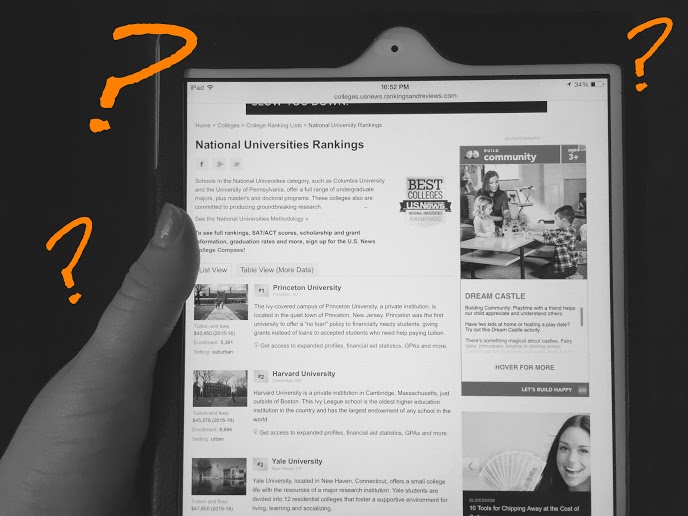National rankings and acceptance rates should NOT be given heavy weight in selecting a college
Many students turn to U.S. News & World Report’s college rankings to aid in their college decisions.
December 17, 2015
This time of year, Cathedral Catholic High School seniors who applied early to colleges have likely received notice of an admission decision, or are expecting a letter in the mail in the near future.
For those students who have been accepted to a college, receiving an acceptance letter generates a new conversation among CCHS seniors and their mentors. Seniors may question themselves: “Sure, I like this school enough to apply, but do I actually want to go there?”
How do high school students determine where they want to go to college? The all-too-common answer is to consider the “Best Colleges” list published annually by U.S. News & World Report. The problem with this list is that the “best college” for any individual student varies greatly.
“The thing about rankings is that it’s giving kind of a false notion that this #1 school would be great for everybody,” Mr. Lou Centanni, CCHS counselor, said.
There are a multitude of factors that go in to determining your “best fit” college, including location, size, cost and student life. High school students have to remember that national rankings don’t consider their individual preferences regarding these factors. In fact, some determining factors of U.S. News & World Report’s rankings, if known by students, would make the list invalid to them.
One of these factors is endowment. How much does a student care about the income of an educational institution? Likely, a student cares very little. Another contributing factor to college rankings is the quality of students entering the college on a yearly basis. Because schools like Harvard maintain a top position on the national rankings list, it is easy to see how the factor of quality of students entering is self-perpetuating. Likely, if a student has the grades to be accepted to Harvard, they will attend. The question is, does an environment of other highly competitive students attract you?
There are a few factors to consider when entering a highly selective college. What do acceptance rates tell you?
According to Mr. Centanni, “Selectivity tells you the type of student you’re going to be around, in terms of academic history. You know, if you’re talking about a 5% acceptance rate, you’re going to be around kids from all over the world who have done extremely well in high school. On the other hand, that’s not going to be a very diverse population.”
If the students come from all over the world, how is diversity limited? The word “diversity” is almost always associated with racial diversity. However, Mr. Centanni is referring to diversity in types of intelligence. Who is to say that a person who is able to maintain a 4.5 GPA is smarter than someone whose GPA is considerably lower? A high GPA certainly indicates intelligence of some kind. It is likely students with a GPA above 4.0 are simply achievers. No doubt an admirable trait, these types of students likely have good study skills and are disciplined when it comes to getting work done. It is important to consider when choosing a college, what type of learning community do you prefer?
Another factor of choosing highly selective institution is a lack of opportunity.
“Take a highly selective school, does that mean to get into certain programs, to get certain opportunities, you’re always going to have to be competing?” Mr. Centanni said.
While this factor is something to seriously consider for some students, others might feel as though they will thrive in a competitive environment. Perhaps being around other motivated, over-achieving people will inspire a particular student to try their best. Consider, however, while some institutions provide amazing opportunities for freshman, others are more focused on upperclassman and graduate students.
It is true that college is the next level of education, but it is also four years of your life. When considering a college, students should recognize the coming years as a transition into adulthood and life on their own. It isn’t uncommon for students to become excited about college and develop interest in a particular major, and start thinking about their future in a certain profession. Thinking about the future is beneficial, but students should take a step back and also think about their life in the present – what do they want from their college experience in the imminent years?
CCHS counselor Ms. Christine Connolly loves when her students talk about the future, but she advises her students that the future shouldn’t completely govern their college decisions, “It’s so great to have that mindset, but it’s so easy to get caught up in that and just not really appreciate where you’re going to be living for four years,” Ms. Connolly said.
As far as college rankings go, individual experience cannot be ranked. While a car may be ranked number one for the best safety ratings and the best highway MPG, experience is 100% subjective.
Mr. Centanni explains, “There are intangibles involved in college and the experience you’re going to get.”
Experience is not a tangible item; it cannot be tested for safety or rated “most efficient.” The student has to determine which place that feels right to them. Ms. Connolly always suggests her students visit campus before making their final decision.
If you don’t know where to start in determining your final college decision, answer the questions below and determine which school best meets your criteria and preferences.
1. Do you want to be in a larger or smaller environment? What student population sounds like a “good number” to you?
2. Do you want a city or small-town environment, or something in-between?
3. Is money a factor?
4. How far away do you want to be from home? Does the thought of moving a few states over give you anxiety or do you feel you could handle it?
5. What type of weather are you willing to encounter?
6. Does the institution in question offer your intended major?
7. What is your first instinct? Though this may be difficult to determine without visiting campuses, after visiting your potential schools, wipe all the technical factors out of your mind and ask yourself: Which one do I like better?
Good luck to the Class of 2016 in its college decisions. Congratulations to those who have received acceptances. To those who have been denied admission, do not get down on yourself. The college admissions process is becoming increasingly competitive by the year, and you will certainly find a place that you love. To those who are waiting in eager anticipation, and to all seniors, I hope you find this article useful in the task of selecting your home for the next (give or take) four years.



